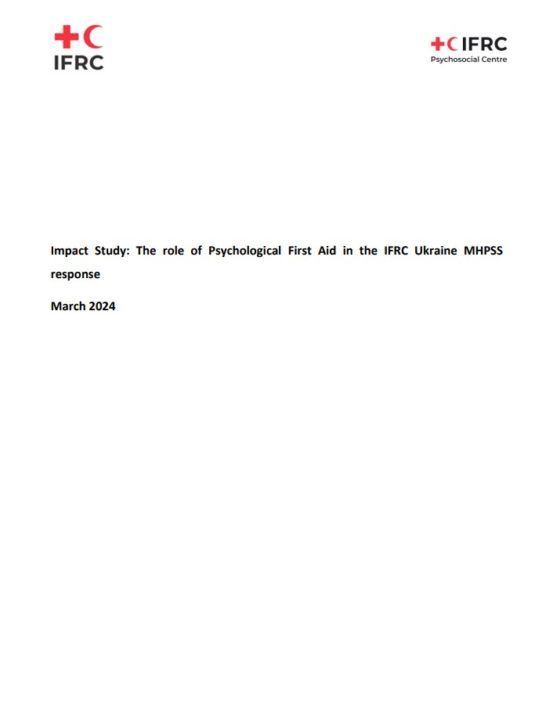There is no doubt the international armed conflict in Ukraine has had severe mental health implications for exposed populations but what has been the effects of coordinated efforts to respond?
Capturing the impact of mental health and psychosocial support is by definition a lot more challenging and complex than in the case of other humanitarian interventions that can often be explained with simple statistics. Evaluating MHPSS goes further than relying on numbers of people reached rather it needs to include cultural perceptions of wellbeing as well as a longitudinal measurement. However, through the cooperation with the IFRC Regional Office of Europe and seven National Societies we have been able to provide some insights covering challenges, gaps, strengths and lessons learned in the provision of Psychological First Aid to displaced people from Ukraine – a body of knowledge that can also inform future interventions.
Sarah van der Walt, Technical Advisor at the IFRC Reference Centre for Psychosocial Support and author of the study
In response to the exponentially growing need to provide Mental Health and Psychosocial Support (MHPSS) services to people displaced from Ukraine National Societies have been committed to integrating and implementing Psychological First Aid (PFA) within their Ukraine Response to provide Psychosocial support and to ensure displaced Ukrainians receive the adequate services. This is the first instance of a coordinated, unified effort to apply Psychological First Aid (PFA) across various contexts, addressing the needs of individuals displaced from Ukraine. This study aims to highlight the opportunities, strengths, challenges, and gaps in such a unified effort to integrate PFA into National Societies’ Ukraine Response.



